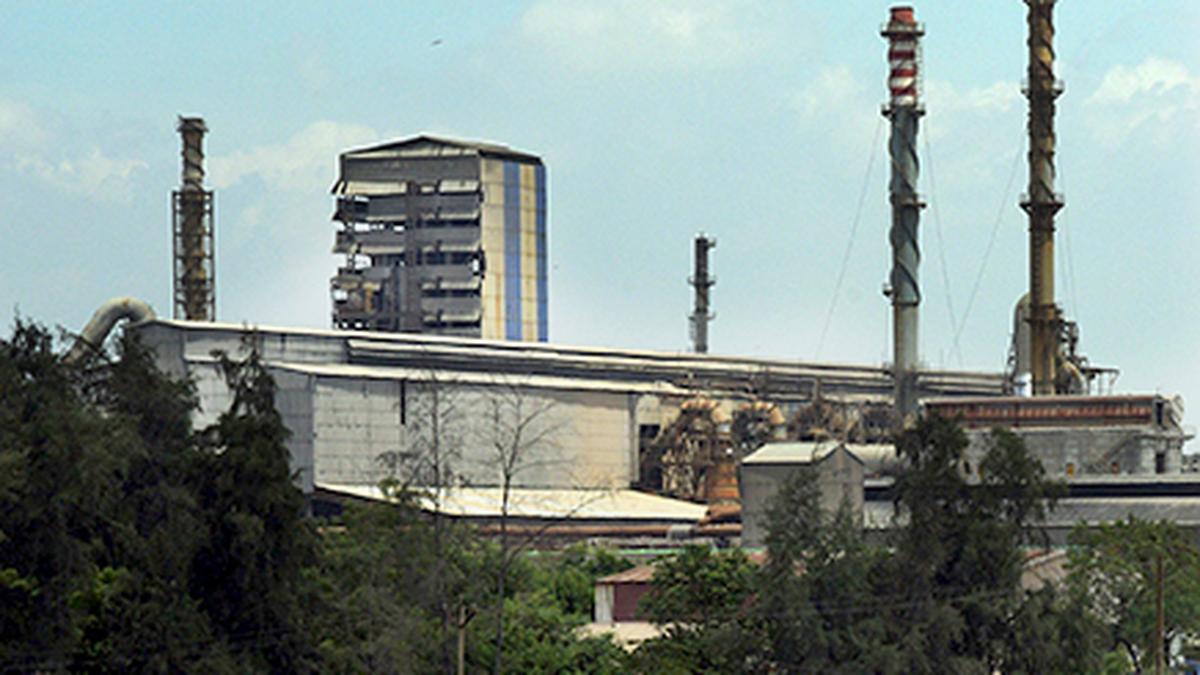
The Sterlite Plant in Thoothukudi. File
| Photo Credit: The Hindu
With Sterlite Copper shifting its machinery out of Thoothukudi, a new question emerges: Is it a gain for other States? The answer depends on your viewpoint — as a citizen, vendor, contractor, activist, pacifist, community leader, or administrator.
The smelter at Thoothukudi was shut down in 2018, following allegations of air pollution and groundwater contamination. We recall with sorrow the police firing in May that year, which led to the loss of 13 lives.
Moving to the present, what is topical is a decision taken in mid-March by Vedanta Resources, the global mining and metals enterprise that owns Sterlite Copper. The management is shifting all the machinery and equipment procured seven years ago. This will be rehoused at their copper plant in Silvassa, Western India. This move is not entirely unexpected. The capital cost of machines and materials to set up a smelter is over ₹6,000 crore, and a seven-year wait with no silver lining in the cloud can be daunting for a project owner.
Is this the beginning of a complete decommissioning? Or is it too late for a second chance? While the future remains uncertain, it is worth going back in time.
The smelter was commissioned in 1997 as a “Red Category” unit — referring to industry sectors with a Pollution Index Score of 60 and above.
In August 2020, the Madras High Court ordered the plant’s closure. This decision was upheld by the Supreme Court in February 2024. A review petition was also dismissed . The only remaining legal resort is a Curative Petition, which, if accepted, could reopen the case.
Here are questions that engage minds: Have pollution levels reduced significantly in Thoothukudi since the smelter was shut down? Is groundwater less contaminated? Is the rainfall more than before? Is the incidence of cancer and respiratory issues lower than before?
Among the 60-plus Red Category units operating in Thoothukudi district, was Sterlite Copper the only reason for alleged pollution? For the answer, an audit can be initiated by the State administration on safety, compliance, and emission control parameters applicable to every Red Category unit in the vicinity. The review must include whether requisite permissions for Consent to Establish and Consent to Operate have been obtained or renewed as per the due date.
As for Sterlite Copper, rather than a total shutdown, the route could have involved additional regulatory protocols and safety enhancements in areas found wanting. The management of the smelter has consistently said they are open to implementing corrective measures.
Gaining a complete understanding of a complex industry such as copper smelting is not easy for the layperson. But the impact of a shutdown of a major facility is evident to all.
This was clear in West Bengal in 2008, when Ratan Tata relocated the Nano car plant to Gujarat after the then-Opposition party demanded land be returned to farmers. This had an impact on the State’s pro-industry image and affected ancillary industries.
Understandably, the Tamil Nadu government remained silent for years while the Sterlite case was sub judice for several years. With no petition pending or hearing ongoing in courts at present, the timing may be just right for the leadership to act, if it believes the phased exit of Sterlite Copper is not in the best interest of the State and community.
While Tamil Nadu is on a path of rapid industrial growth, evidence points to the paucity of copper at the national level. Mayur Karmarkar, Managing Director, International Copper Association, said in an interview with Business Line earlier this year that domestic copper production is struggling to keep pace with rising demand.
Who gains, who loses
With the recent commissioning of Kutch Copper, Gujarat now has a steady supply of refined copper for industries, electric vehicle manufacture, and for solar and wind energy equipment.
However, Tamil Nadu will have to source the critical input material from other parts of the country or import refined copper from overseas.
Is this a loss for Tamil Nadu and a gain for Gujarat or other States? The tide in Thoothukudi, which ebbs and flows, may have the answer.
The writer is a former journalist and now serves as a communications consultant
The writer is a former journalist and now serves as a communications consultant
Published – April 17, 2025 02:15 am IST
